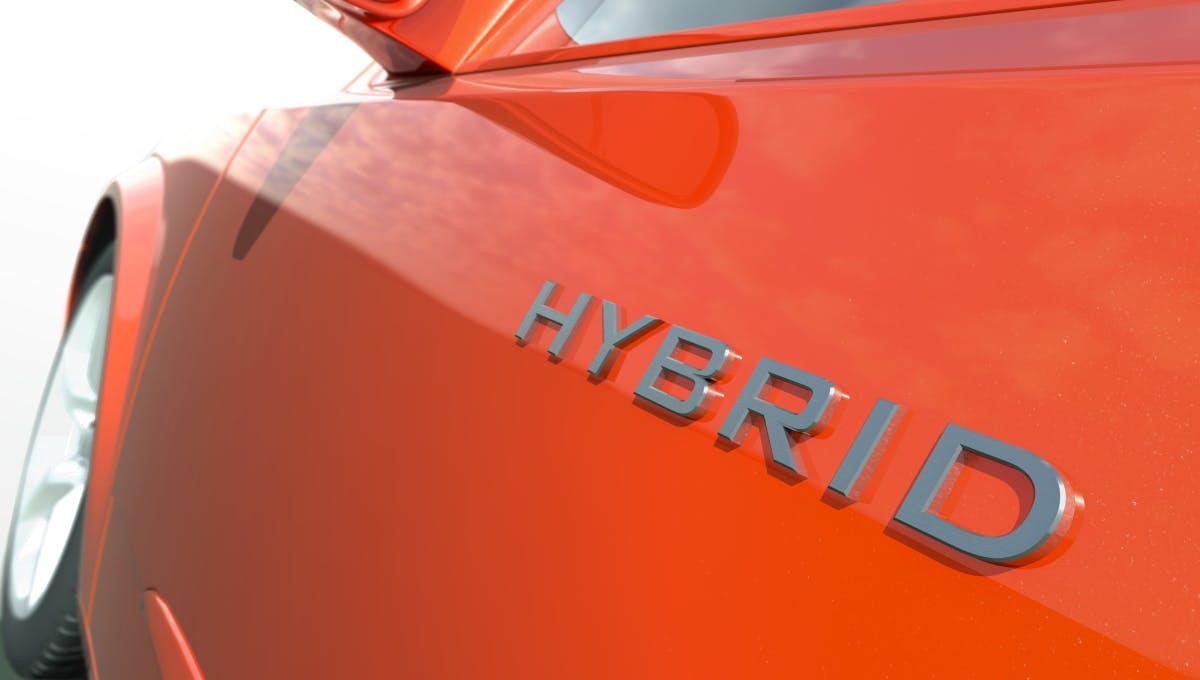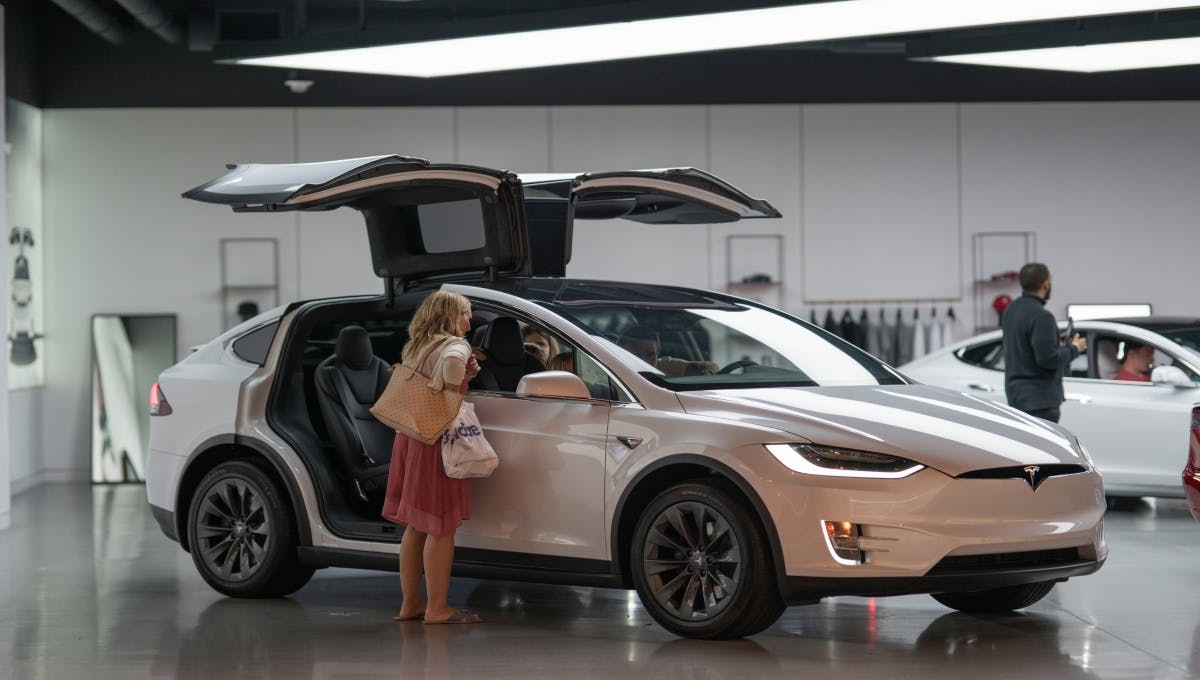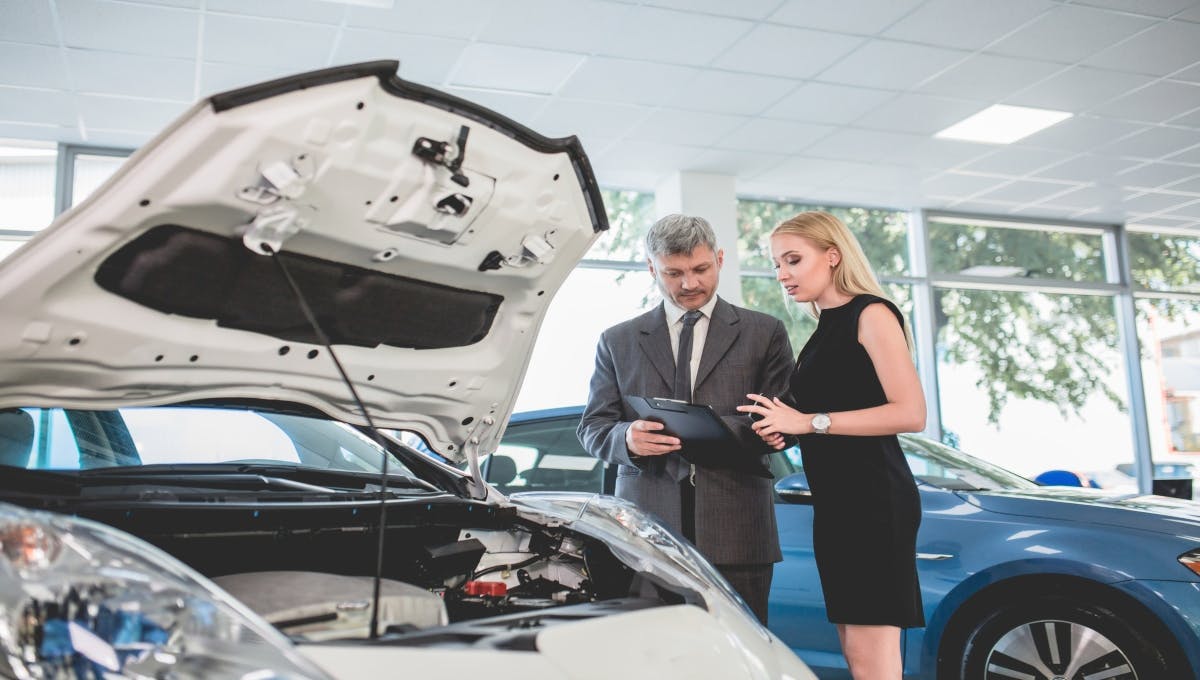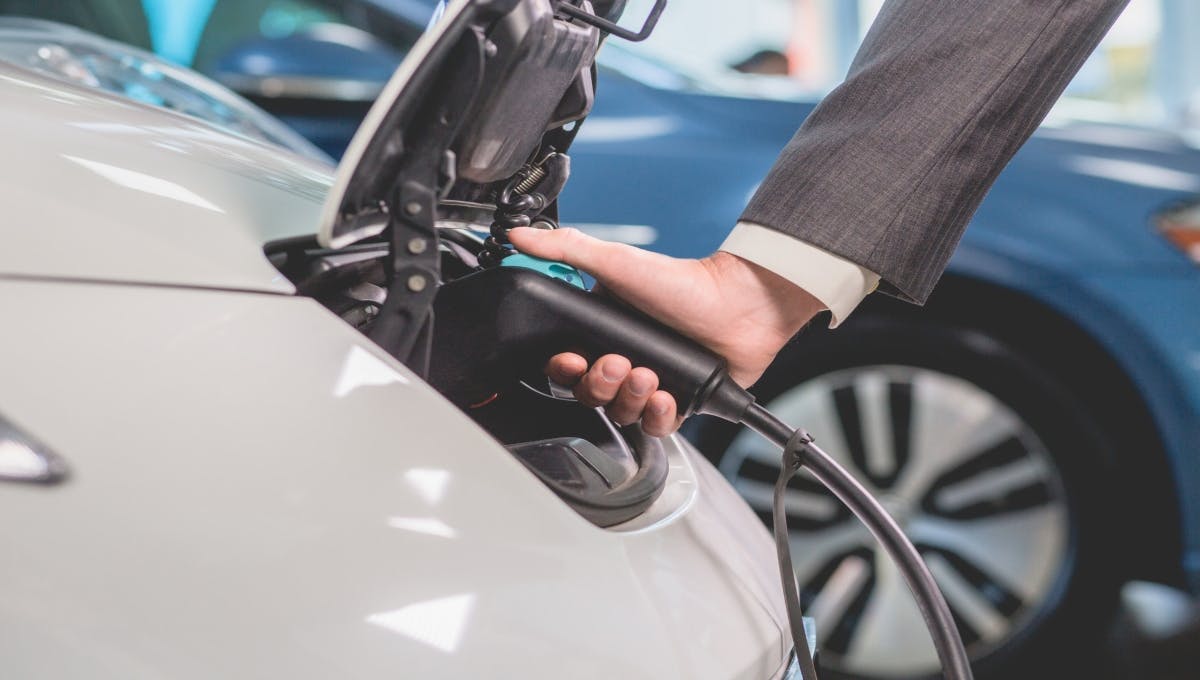The Definitive Guide to Buying (Or Leasing) An Electric Car
What's Covered
- Introduction
- How Does An Electric Car Work?
- Why Buy/Lease An EV For Personal Use?
- Why Buy/Lease An EV For Business Use?
- Electric Car Costs
- Electric Car Range
- Electric Car Batteries
- Public Charging Network
- How To Charge An Electric Car
- Charging Point Installation
- Electric Car Charging for Businesses
- Environmental Impact
- Safety
- Performance
- Are EVs Worth It?
- Buy Now Or Wait?
- Buy Or Lease?
- Which Electric Car Should I Get?
- Conclusion
If you’re making the switch for the first time, buying or leasing an electric car is quite the change!
Whilst UK electric car sales are booming month-on-month, EVs still aren’t the norm, so there are a fair few adjustments to make. That said, the benefits are immense.
If you’re considering leasing or buying an electric car, you’ll know it’s not a decision to take lightly. That’s why we’ve created this guide to buying an electric car. In this guide, we’ll cover just about every aspect of electric car ownership you can think of - check out the contents bar to jump between sections most relevant to you.
We’ve also written more in-depth posts on some topics in this guide, so if you want to find out more, follow any of the links throughout!
How does an electric car work?
We’ll start off with the technical stuff - how exactly does an electric car work?
We’re not going to give you a university-style electrical engineering lecture here, but it’s important to know roughly how the car works so you know what you’re working with!
Whilst this guide focuses mainly on pure electric cars, it’s helpful to know that there are a few types of electric car.
Fully Electric Vehicle (EV)
Also referred to as a Battery Electric Vehicle (BEV), these cars run solely on electricity. To charge, you plug it into a charge point and it sucks up electricity from the grid. This is stored in rechargeable batteries which power its electric motor, and this turns the wheels. For more on charging, see the "How To Charge An Electric Car" section (. Fully electric cars don’t have a clutch or gears. You simply have a button or switch which lets you set the car in drive, park, or reverse mode.
Plug-In Hybrid Electric Vehicle (PHEV)
A plug-in hybrid is a car that can be powered either using electric or diesel/petrol. It has an electric battery and motor as well as an internal combustion engine. You charge it like a normal EV by plugging it in and it priotises electricity until its stores run out. Then the ICE kicks in and it uses the other fuel type as a backup. It typically hasn’t got as large an electric range as an EV.
Hybrid Vehicle
A hybrid car is powered similarly to a plug-in hybrid, with the exception that it cannot be plugged in to charge. It’s sort of like a self-charging car which charges via regenerative braking - when you hit the brakes, this generates electricity which is stored in its battery.
Mild Hybrid Vehicle
A mild hybrid can’t be driven in electric-only mode. It has an electrical system that increases its efficiency by using regenerative braking to help accelerate. That’s why it’s called a “mild” hybrid, as it’s not quite a hybrid but uses similar technology.

Why should I lease or buy an electric car for personal use?
You’ve probably heard some real scare stories about driving an electric car.
“There are hardly any charging points!”
“You can’t go on the motorway without running out of power!”
“Mechanics don’t know how to maintain an electric car!”
“Electric cars are way more expensive than normal cars!”
Sound familiar? We’re here to tell you that this is all absolute nonsense!
We’ll go in more in depth on all these points below, but in summary, you should lease or buy an electric car because:
You can get Government purchasing grants for some electric car models.
Electric car running costs are far lower than those of ICE cars.
The charging network is actually very extensive, outnumbering petrol stations!
You can get a Government grant for home chargers.
They are much better for the environment than ICE cars.
They are just as reliable and safe (even slightly more so) as ICE cars.

Why should I lease or buy an electric car for business?
A business will benefit from almost all the same pros of electric cars that personal consumers will, including lower running and maintenance costs.
By investing in electric company cars, businesses will benefit from:
The lowest company car tax on electric cars every - BIK rates are 0% for 2020/21!
Workplace Charging Scheme grant for electric charger installation (see our charger installations section for more details).
Lower company carbon emissions.
Improved company reputation with boosted eco-credentials which may attract clients, employee talent, and investment.

Electric Car Costs
So, we’ve said that electric cars are cheaper to run than traditional ICE cars. Where are the savings made?
Purchase Price
You might have looked at the cost of an EV and cried a little. "Why are electric cars so expensive!?"
We won’t deny that the initial purchase price of an electric car can be pricier up front (we've done a whole post on how much an electric car costs).
Where manufacturers produce one model in both ICE and electric variants, the electric version is normally a few grand more expensive. Manufacturers are pumping more money into research and development than ever, so the end purchase costs are currently at their lowest, and the price will continue to go down.
You can, however, shave some of the extra expense off. In the UK, the Government offers up to a £1,500 grant when you buy a plug-in vehicle that can travel at least 70 miles emission-free and costs less than £32,000.
You still pay VAT on electric cars like you would with cars powered by other fuel types.
Electricity Costs
The cost of charging an electric car varies depending on whether you’re charging at home on a decent EV tariff or in a public place. On average, electricity costs much less than fuel for an ICE car.
For example, in the UK, the cost of 100 miles of electrical fuel is 91% cheaper in a Tesla Model 3 than in an equivalent petrol car. That’s some serious savings!
Maintenance and Repair Costs
Electric car maintenance costs are generally lower because EVs have fewer moving parts, so there is less chance of things going wrong. That doesn’t mean that they never have any problems, but in a What Car study, the most popular EVs had reliability rates above 95% - your repair bill should be pretty low!
You’ll still need to pay for an electric car MOT (if the car is 3+ years old) and regular servicing. Electric car servicing is actually simpler than traditional ICE cars since there are fewer moving parts, so it may cost you less.
The biggest component to worry about is the battery which we discuss later - in short, these last around 10 years before you even need to think about replacing it.
Tax and Congestion Charges
For now, electric cars are exempt from paying road tax! Businesses also pay no benefit in kind tax on electric cars this year, and there are low rates in the next few years - you can read more about that in the "Why should Iease or buy an electric car for business?" section.
Many cities are introducing congestion charges on conventional cars if they produce emissions over a certain level. Electric cars are granted access to these cities free of charge!
Insurance Costs
Early EV adopters reported paying higher insurance premiums. Insurance companies didn’t have historic data to work out how much repairs would cost on average, given these models haven’t been around very long.
Now insurance premiums are coming down because:
- More data is available on repairs to make accurate risk assessments.
- Electric batteries are quite well protected in accidents, reducing the cost of repair payouts.
- EVs are less likely to be stolen and more easily recovered due to their limited range.
To make sure you get the best bang for your buck with your cover, make sure you compare insurance plans every year.

Electric Car Range, Batteries, and Charging
This is the real meaty stuff you want to know about when considering an electric car. How far can an EV go on a single charge? How long does the battery last? How does charging work?
Average Range of EVs
The average range of an electric car has shot up in recent years. Pretty much every electric car manages over 200 miles on a single charge, with a few exceptions that come close. That’s the equivalent of 2 return trips from Glasgow to Edinburgh!
We’ve rounded up the electric range of 20 popular electric cars below:
| Model | Manufacturer Estimated Electric Range (Miles)* |
|---|---|
| Tesla Model S | 390 |
| Tesla Model 3 | 360 |
| Tesla Model X | 340 |
| Hyundai Kona | 300 |
| Jaguar i-Pace | 292 |
| Kia e-Niro | 282 |
| Kia Soul | 280 |
| Porsche Taycan | 279 |
| Volvo XC40 | 257 |
| Mercedes EQC | 255 |
| Audi e-Tron | 249 |
| Renault Zoe | 245 |
| Nissan Leaf | 239 |
| Peugeot e-208 | 217 |
| Vauxhall Corsa | 209 |
| Hyundai Ioniq | 193 |
| BMW i3 | 182 |
| Volkswagen e-Up! / Seat Mii Electric | 160 |
| MINI Electric Hatchback | 145 |
| Volkswagen e-Golf | 144 |
| Honda E | 137 |
*Figures taken from each car manufacturer’s official website (correct as of 28/4/21). Real-world figures will differ.
Batteries
The average electric car battery lasts about a decade. Most electric cars have a separate warranty on the battery that lasts between 7 and 10 years, or 100,000 miles, so you’ve got a good long run before you need to think about replacement costs.
By the 10 year mark, the capacity of the battery drops by 40%, so you’ll have to charge more frequently the older the car. As EVs have become more popular, the price of batteries has reduced - it dropped a whopping 80% between 2010 and 2016.
They still have a pretty hefty price tag, at around £165/kWh, which equates to £10,000 for a 40kWh battery. By 2030, this is estimated to drop by half.
Public Charging Network
Range anxiety is probably the most cited reason against getting an electric car. You may be freaked out by the idea your battery could deplete on the road without an electric car charger in sight. The practicality of running an EV is often questioned.
In the UK, however, there are actually almost 4 times more electric charging stations than petrol stations! For every 10 petrol stations, there are at least 39 charging points. More and more electric car charging companies are cropping up so there’s healthy competition to extend the charging infrastrucutre.
How To Charge An Electric Car
There’s lots to learn in the world of electric car charging, but thankfully, learning how to charge an electric car is incredibly easy. Once you get to grips with the different EV charger types (slow, fast or rapid charging) and which one your future EV uses, it’s a case of plugging in and paying up.
Electric car charging at home is super simple with a home charger, but if you’ve not got one, or you want to try electric car charging at home with no driveway, things are a little trickier, but not impossible.
How you pay for electric car charging depends on where you’re plugged in. At home, the cost of charging is incorporated into your standard electricity bill and you can get flexible EV tariffs for low, low prices. In public, you can pay via debit/credit card, an app, or an electric car charging card. Occasionally you’ll find a free charging station.
The length of time to charge an electric car also depends on where you are. Charging times vary by charger type and how full your battery already is. Charging to 80% full is much quicker than the last 20%. How often you need to charge an electric car is affected by how much you drive - constantly “topping up” the battery is not good for it, so you should wait til its “tank” runs pretty low before juicing up.

Charge Point Installation
Getting an electric car charging point installed is easy these days. You just need to find a company that installs electric car charging stations and ensure your plans adhere to local building regulations.
The actual electric car charging point installation process isn’t too time consuming. The cost of an electric car charging station depends on whether it’s for home or public use.
Installing Chargers At Home
For personal use, the Government Office for Low Emission Vehicles (OLEV) offers financial help through the Electric Vehicle Homecharge Scheme (EVHS). This grants you either £350 or up to 75% off of the cost of a charger and installation.
There are lot of chargers and providers on the market, so check out Rightcharge to compare home electric car charging points. This is an affiliate link where Lease Fetcher earns money if you choose to go with one of Rightcharge's providers via Rightcharge. You will not be charged extra for using this link.
Electric Car Charging for Businesses
Businesses have access to the Workplace Charging Scheme. The grant is similar to the EVHS, giving you 75% or £350 off the cost of a charger, but this applies to up to 40 chargers.
Electric car charging points for business can be used for:
- Charging electric cars in your fleet.
- Your employees to charge their own cars.
- For your customers to use.
Installing electric car chargers on your business premises comes with many benefits, depending on who they are for. The advantages include:
- Easy to charge up your business fleet so it’s ready for action whenever you need it.
- Great work perk for employees which may attract/retain talent.
- Helps the company meet the carbon footprint goals and builds positive reputation.
- Incentive for customers to use your services.
- You can monetise the charging points.

Environmental Impact of Electric Cars
If one of your biggest priorities is saving the planet, then leasing or buying an electric car is a no-brainer. Including its production and ongoing charging, an electric car produces less harmful emissions over the course of its life than an equivalent petrol/diesel car. It obviously produces zero emissions when driving.
On average, 1 electric car saves 1.5 million grams of CO2, which is the equivalent of four return flights from London to sunny Barcelona!
Read more about whether electric cars are better for the environment.
Safety of Electric Cars
Electric car manufacturers have decades of safe designs to draw from, so there are no real safety differences between EVs and ICE cars.
If anything, EVs have a couple of safety advantages. The first is the lack of flammable fuels - in the event of a crash, there’s no petrol or diesel or other liquids to go up in flames. The second is that there is more flexibility in the placement of the car battery, so more effective crash structures can be designed.
Loads of popular EVs have a 5 star Euro NCAP rating, so you’ve got nothing to worry about!
Electric Car Performance
Worried an electric car won’t pack the same punch as an ICE car? Electric cars have proven their worth, breaking 0-62mph records. The Tesla Model S can do 0-62 in an astounding 2.3 seconds. The Hyundai Ioniq Electric can do it in 5.3 seconds and even the Nissan Leaf racks up 62mph in 7.9 seconds.
In terms of handling, an EV battery pack can be positioned closer to the ground which lowers the centre of gravity. This makes them substantially easier to manoeuvre.

Are electric cars worth it?
Absolutely. If you want lower running costs, less maintenance and repairs, a more eco-friendly model, and something easy yet powerful to drive, then an electric car fits the bill better than any ICE car could.
Should I buy an electric car now or wait?
2030 will mark the end of all new ICE car sales in the UK. So, should you buy an electric car now or wait another 9 years until you can only buy new electric cars? The choice is ultimately up to you and what you feel comfortable with - here is some food for thought.
Costs Now vs 2030
Right now, you can take advantage of the Government purchasing incentives. We’ve seen in other countries like Norway where EV uptake has increased rapidly, these incentives have later been scrapped. We can’t predict the future, but there’s a good chance the Government will get rid of the incentives closer to the deadline because you’ll have no choice but to buy an EV!
Running costs are already massively lower for EVs than ICEs, so if you cash in now, you’ll have 9 years worth of additional savings. That is nothing to be sniffed at!
Charging Network Now vs 2030
We’ve already mentioned that there are more electric car charging points than petrol stations in the UK now. This takes into consideration the whole of the UK, however, so the coverage for your area may be more sparse. You can check out our electric car charging map to see if you’ll have any issues charging in public in your area. By 2030, the UK Government will have invested £1.3 billion on charging stations for private and public use.
Component Issues Now vs 2030
You might have worries about leasing or buying an electric car just now while EV technology is still in its infancy (sort of). Some EV drivers have complained about manufacturer faults that are going to take a while to repair given the lack of mainstream mechanic knowledge or easy availability of parts. You may want to consider waiting until manufacturers have got past some model “teething” problems. That said, there are many EV models that have been around for several years so the brunt of their issues have been ironed out.
Model Choices Now vs 2030
Even in the last year or so, the number of EV models on the market has skyrocketed. You can take your pick of city cars like the Peugeot e-208 and Renault Zoe, modest family cars like the Kia Soul and the Vauxhall Corsa-e, and big SUVs like the Audi E-Tron. You can find a car that suits most needs, but in the next 9 years, the choice will have expanded considerably.

Should I buy or lease an electric car?
If buying an electric car upfront scares you, leasing is a great alternative!
With leasing, you never own the car. You just get full use of the car for the duration of your contract and in return you pay the cost of depreciation (the cost to lease a car is often around 40% of the car’s initial value over 3 years).
To help you decide whether to lease or buy a car, we’ve outlined some of the pros and cons of leasing an electric car below:
Pros
-
Affordable monthly payments (great for models above £35k that aren’t covered by Government purchasing grant).
-
Brand new car with full manufacturer’s warranty.
-
Short contracts (>3 years) means you get access to the latest of fast-changing electric car technology.
Cons
-
Need to abide by BVRLA guidelines for fair wear and tear so you may pay out in lease car return charges if the car isn’t in tip top condition on return.
-
Even if you love the car, there is no option to purchase it after your contract ends.
-
You are bound by a mileage allowance during your contract.
Electric car technology is rapidly changing so leasing is a great idea if you want to enjoy the latest advancements when they happen, and so you’ve always got the most efficient model in your parking space. As new features are added to EVs, older models will rapidly depreciate, so if you buy outright, you’re guaranteed to make significant losses if you try to sell it on in a short time frame.
Leasing an electric car is a savvy move for many drivers. If it sounds up your street, you can compare the best electric car lease deals on the UK market with ease on Lease Fetcher. If you’re not 100% sure what model to go for, check out our round up of the best electric cars. We discuss models more later on in this guide too.

Which electric car should I buy or lease?
We’ve compiled a general list of the best electric cars available in the UK - with such a wide selection of EV models, from little city cars to big electric SUVs, we can afford to be a bit more specific, helping to match you to a car that best suits your driving needs!
Whether you want a long range business car a seven seater electric SUV, the table below outlines which group these electric cars are perfect for. These categories are not rigid - these are just our suggestions!
| Model | Perfect For... |
|---|---|
| Volkswagen e-Up! | First Time Drivers and Short Distance Driving |
| Peugeot e-208 | Small Families and First Time Drivers |
| Vauxhall e-Corsa | Small-Medium Families |
| Nissan Leaf | Small-Medium Families |
| BMW i3 | Small Families and Businesses |
| Hyundai Ioniq | Small-Medium Families and Businesses |
| Tesla Model 3 | Small-Medium Families and Businesses |
| Polestar 2 | Small-Medium Families and Businesses |
| Audi E-Tron Sportback | Businesses |
| Audi E-Tron Estate | Large Families |
| Tesla Model X | Large Families |
| Porsche Taycan | Fun |
| Ford Mustang Mach-e | Fun |
What do you think?
We know this is a helluva lot of information to take in, but we hope it has been helpful!
If you’re interested in making the switch and you’re considering leasing, Lease Fetcher has rounded up the best electric car lease deals on the market for you to compare. We gather prices from the UK’s leading leasing brokers so you don’t need to hunt high and low for the perfect deal for you!
What's Covered
- Introduction
- How Does An Electric Car Work?
- Why Buy/Lease An EV For Personal Use?
- Why Buy/Lease An EV For Business Use?
- Electric Car Costs
- Electric Car Range
- Electric Car Batteries
- Public Charging Network
- How To Charge An Electric Car
- Charging Point Installation
- Electric Car Charging for Businesses
- Environmental Impact
- Safety
- Performance
- Are EVs Worth It?
- Buy Now Or Wait?
- Buy Or Lease?
- Which Electric Car Should I Get?
- Conclusion


